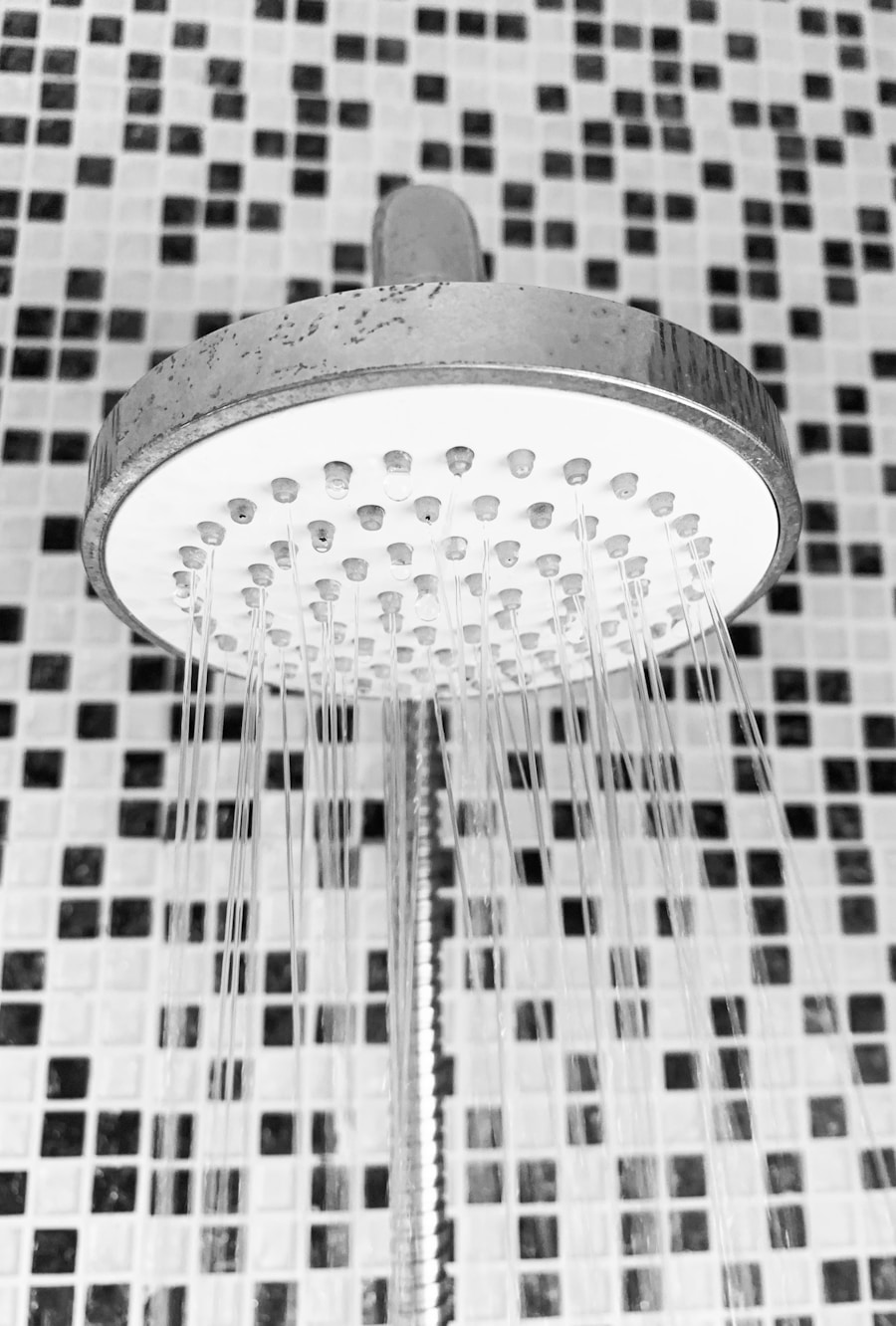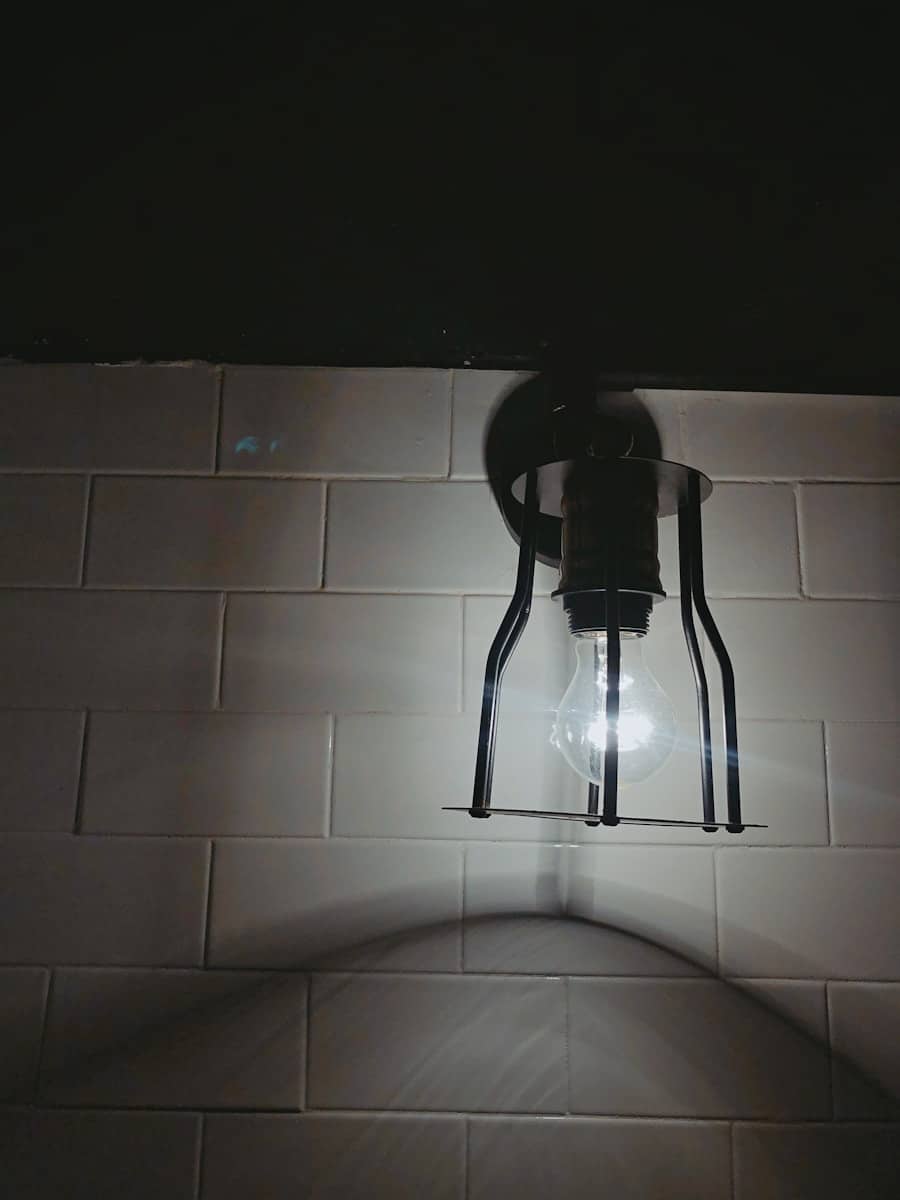The advent of artificial intelligence (AI) has permeated various aspects of modern life, transforming everyday experiences into more efficient and personalized encounters. Among the most intriguing innovations in this realm is the AI-powered smart shower, a device that not only enhances the showering experience but also addresses pressing environmental concerns, particularly water conservation. These smart showers utilize advanced algorithms and machine learning to adapt to individual user preferences, optimize water usage, and provide real-time feedback on consumption patterns.
As urban areas face increasing water scarcity and environmental degradation, the integration of AI technology into household fixtures like showers represents a significant step toward sustainable living. AI-powered smart showers are equipped with sensors and connectivity features that allow them to learn from user behavior over time. This capability enables them to adjust water temperature, flow rate, and duration based on individual preferences, ensuring a comfortable experience while minimizing waste.
For instance, a smart shower can remember the ideal temperature for each family member and automatically adjust settings accordingly.
As the world grapples with the challenges of climate change and resource depletion, the role of such innovative technologies in promoting sustainability cannot be overstated.
Key Takeaways
- AI-powered smart showers use advanced technology to optimize water usage and enhance the showering experience.
- These smart showers offer significant benefits for water conservation, including reducing water waste and promoting sustainable living.
- AI technology is revolutionizing water usage in smart showers by analyzing data and adjusting water flow in real time to minimize waste.
- Machine learning plays a crucial role in optimizing water efficiency by learning user preferences and adjusting settings accordingly.
- The future of AI-powered smart showers looks promising for sustainable living, but there are challenges to overcome in terms of adoption and integration into smart home systems.
The Benefits of AI-Powered Smart Showers for Water Conservation
One of the most compelling advantages of AI-powered smart showers is their potential for significant water conservation. Traditional showerheads often dispense water at a constant rate, regardless of whether it is necessary or efficient. In contrast, smart showers can dynamically adjust flow rates based on real-time data, effectively reducing water waste without compromising user comfort.
For example, if a user steps away from the shower for a moment, the system can automatically reduce the flow or pause entirely until they return. This feature not only conserves water but also contributes to lower utility bills, making it an economically attractive option for households. Moreover, AI-powered smart showers can provide users with detailed analytics regarding their water usage patterns.
By tracking consumption over time, these devices can highlight trends and suggest actionable changes to reduce waste. For instance, if a user typically showers for 20 minutes but is informed that they could save a substantial amount of water by reducing their shower time to 10 minutes, they may be more inclined to make that adjustment. This data-driven approach empowers individuals to take control of their water usage and fosters a culture of conservation within households.
How AI Technology is Revolutionizing Water Usage in Smart Showers

The integration of AI technology into smart showers is revolutionizing how we think about water usage in our daily routines. Traditional plumbing systems are often static and unresponsive to individual needs, leading to inefficiencies that contribute to excessive water consumption. In contrast, AI-powered systems leverage real-time data and predictive analytics to create a more responsive and personalized experience.
For instance, these showers can analyze historical data to predict when a user is likely to shower and adjust settings accordingly, ensuring optimal performance while minimizing waste. Additionally, AI technology enables smart showers to communicate with other devices within a smart home ecosystem. This interconnectedness allows for coordinated efforts in water conservation across various household appliances.
For example, if a washing machine is scheduled to run shortly after a shower, the smart shower can adjust its flow rate to ensure that overall water usage remains within sustainable limits. This level of integration not only enhances convenience but also amplifies the impact of individual conservation efforts by creating a holistic approach to resource management.
The Role of Machine Learning in Optimizing Water Efficiency
Machine learning plays a pivotal role in enhancing the efficiency of AI-powered smart showers. By continuously analyzing user behavior and preferences, machine learning algorithms can identify patterns that inform how the shower operates. For instance, if a user consistently prefers a specific temperature range or duration for their showers, the system can learn these preferences and automatically adjust settings without requiring manual input.
This not only improves user satisfaction but also ensures that water is used judiciously. Furthermore, machine learning algorithms can adapt to changes in user behavior over time. Life events such as moving to a new home or changes in family size can alter water usage patterns significantly.
Smart showers equipped with machine learning capabilities can recognize these shifts and recalibrate their operations accordingly. This adaptability is crucial in promoting long-term water conservation as it ensures that the system remains effective even as individual circumstances evolve.
The Future of AI-Powered Smart Showers in Sustainable Living
As society increasingly prioritizes sustainability, the future of AI-powered smart showers appears promising.
Future iterations may incorporate even more sophisticated features, such as integration with weather forecasting systems that adjust water usage based on anticipated rainfall or drought conditions.
Such innovations could further enhance the role of smart showers in promoting responsible water consumption. Moreover, as cities continue to grapple with water scarcity due to climate change and population growth, the demand for efficient water management solutions will only increase. AI-powered smart showers represent a proactive approach to addressing these challenges by empowering individuals to make informed decisions about their water usage.
As manufacturers invest in research and development to improve these technologies, we can expect to see enhanced functionalities that not only optimize performance but also contribute to broader sustainability goals.
Overcoming Challenges and Barriers in Adopting AI-Powered Smart Showers

Despite the clear benefits of AI-powered smart showers, several challenges and barriers must be addressed to facilitate widespread adoption. One significant hurdle is the initial cost associated with purchasing and installing these advanced systems. While many consumers are becoming increasingly environmentally conscious, the upfront investment required for smart technology can deter potential buyers.
Manufacturers must find ways to make these products more accessible through competitive pricing or financing options that allow consumers to spread out costs over time. Another challenge lies in consumer education and awareness. Many individuals may not fully understand how AI-powered smart showers work or the potential savings they offer in terms of both water conservation and utility bills.
Effective marketing strategies that highlight these benefits are essential for driving adoption rates. Additionally, partnerships with environmental organizations could help raise awareness about the importance of water conservation and how innovative technologies like smart showers can play a role in achieving sustainability goals.
Integrating AI-Powered Smart Showers into Smart Home Systems
The integration of AI-powered smart showers into existing smart home systems presents an exciting opportunity for enhancing overall household efficiency. As more homes adopt smart technology—such as connected thermostats, lighting systems, and security devices—the potential for synergy between these systems becomes increasingly apparent. For instance, a smart home hub could coordinate between various devices to optimize energy and water usage throughout the day.
Imagine a scenario where a smart shower communicates with a home’s energy management system to determine peak energy usage times. By adjusting its operation during off-peak hours or when renewable energy sources are most abundant, the shower can contribute to overall energy efficiency while still providing an enjoyable experience for users. This level of integration not only maximizes resource efficiency but also aligns with broader trends toward creating interconnected living environments that prioritize sustainability.
The Potential Impact of AI-Powered Smart Showers on Water Conservation
The potential impact of AI-powered smart showers on water conservation is profound and multifaceted. By leveraging advanced technology to optimize water usage and promote awareness among consumers, these devices represent a significant advancement in our efforts to address pressing environmental challenges. As we move toward an increasingly resource-conscious society, innovations like smart showers will play an essential role in shaping sustainable living practices.
As we look ahead, it is clear that the journey toward widespread adoption of AI-powered smart showers will require collaboration among manufacturers, consumers, and policymakers alike. By overcoming barriers related to cost and education while fostering integration within broader smart home ecosystems, we can unlock the full potential of this technology in promoting responsible water consumption and contributing to a more sustainable future for all.
In addition to exploring the future of AI-powered smart showers for water conservation, readers may also be interested in learning about the top trends in digital marketing for 2023. This article discusses the latest strategies and technologies that will shape the digital marketing landscape in the coming year. By staying informed on these trends, businesses can better leverage their online presence and reach their target audience effectively.
FAQs
What is an AI-powered smart shower?
An AI-powered smart shower is a shower system that uses artificial intelligence to optimize water usage and provide personalized shower experiences. It can adjust water flow, temperature, and duration based on user preferences and real-time environmental factors.
How does an AI-powered smart shower conserve water?
AI-powered smart showers conserve water by monitoring and analyzing water usage patterns, adjusting flow rates to minimize waste, and providing feedback to users on their water consumption. The AI technology can also detect leaks and inefficiencies in the shower system, further reducing water waste.
What are the benefits of using AI-powered smart showers for water conservation?
The benefits of using AI-powered smart showers for water conservation include reduced water usage, lower utility bills, environmental sustainability, and the ability to customize shower experiences for individual preferences. These showers also contribute to overall water conservation efforts and can help users become more mindful of their water consumption habits.
Are AI-powered smart showers cost-effective?
While the initial cost of installing an AI-powered smart shower may be higher than traditional shower systems, the long-term cost savings from reduced water usage and lower utility bills can make them cost-effective. Additionally, the environmental benefits of water conservation can provide added value to the investment in an AI-powered smart shower.
How does AI technology improve the shower experience?
AI technology improves the shower experience by allowing users to customize and control water flow, temperature, and duration to their preferences. It can also provide feedback and suggestions for more efficient water usage, as well as detect and address any issues with the shower system in real time.

